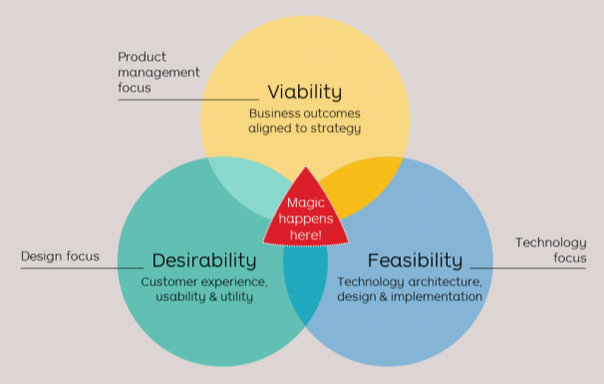
I was asked this week to define the term digital transformation, which means slightly different things depending on your perspective and your own experiences. Here is my personal take on the subject:
What is Digital Transformation?
Digital transformation is the ability to motivate a diverse set of talents to drive change within an organisation to help solve the following challenges:
- Utilise the latest technological advancements to improve decision-making, protect your brand and gain a competitive edge.
- Re-enforce a customer-first culture with proactive, positive behaviours.
- Motivate everyone to continually improve, learn and grow.
- Attract and retain a diverse set of skilled talent.
- Place collaboration and a shared-vision at the heart of decision-making to reinforce agile and effective communications and actions.

Image Source: Scaled Agile Framework
Successful digital transformation results in new opportunities for organisations, including entering new markets, transforming business models and realising new revenue streams.
It’s a multi-year journey requiring leaders who can mentor and coach their colleagues, negotiate and collaborate with their partners, and provide exceptional client experience.
It’s a multi-year journey requiring leaders who can mentor and coach their colleagues, negotiate and collaborate with their partners, and provide exceptional client experience.

The key to becoming such as leader is to understand cultural change, through the 3 ways:
- Flow – Continually removing barriers and bottlenecks from projects, programmes, systems and processes.
- Feedback – Giving and taking open, honest feedback through interactions, events and automation.
- Innovation – Allowing people to experiment in a safe environment, where no-one is judged and risk-taking is encouraged.

The three ways are the foundational pillars of Agile, Lean and DevOps cultures.
Let me provide some specific examples:
Flow
Removing delays in a value stream or process to speed up production. A great example is the use of automation when developing software or making cars. Tesla has demonstrated their commitment to improving flow, as they have moved from producing 1500 Tesla Model 3 vehicles per month to over 5000 per week.
Feedback Loops
Ensuring that people collaborate more closely by asking for feedback. Not just personal feedback, but business -focused feedback such as:
- Does this product meet your expectations?
- How can I improve the experience for you?
This can take the form of surveys or chats, but is most effective in a face to face context. The use of automated testing is a great way of shortening feedback loops. What would take a test team 4 weeks to test, would be achieved in a few hours with automation. The feedback is much faster, which tests failed and why?
Experimentation & Learning
Allowing your team to experiment, make mistakes and effectively learn quickly from those mistakes, is the road to innovation. It needs to be done in a way that is safe for them. The more risks you’re willing to take, the greater the payback. Atlassian, known for their DevOps enabling toolsets, are a great example.
They run innovation days once a month. All employees are encouraged to work on anything they want, as long as they present back the next day. Beer, cake and a relaxed atmosphere, conducive to innovation are supplied. Some of the best ideas and product prototypes have come from those days.
Just look at the suite of Atlassian offerings:

Want to learn more about what we’ve discussed? ALC Training offers the following courses:

